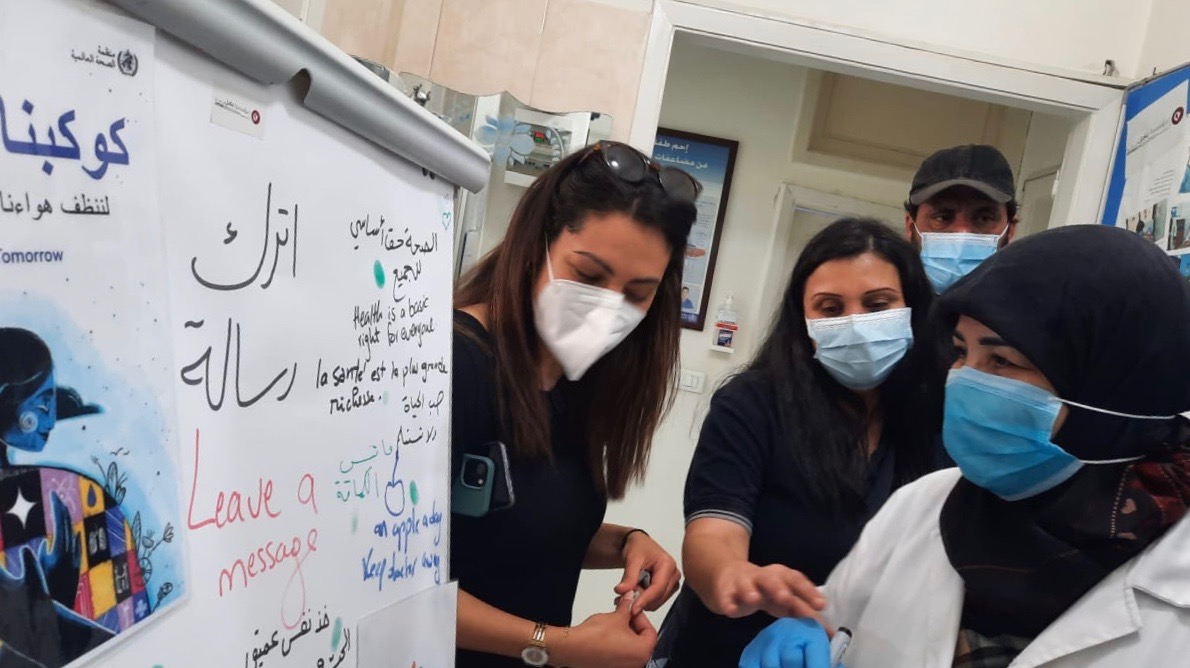Within the Arab world and for various decades, Lebanon had a distinguished reputation for its healthcare system, which provided a broad range of medical services, mostly private, with numerous amenities. The Lebanese healthcare culture emphasized tertiary care: even a simple case of vomiting would receive immediate attention in the emergency department, with a gastroenterologist present. On the other hand, primary care facilities were overlooked and were deemed to be “medicine of the poor.” This perception has changed following the socio-economic crisis of 2019.
Since then, Lebanon has been grappling with a severe economic crisis compounded by political instability, corruption, and economic mismanagement. The crisis has resulted in a plummeting currency, high inflation, and shortages of essential commodities such as fuel, medicine, and food, leading to significant hardships for the Lebanese people. Moreover, the crisis has adversely affected the population’s health, with healthcare services facing critical shortages of supplies, equipment, and personnel.
A scarcity of health resources
Before the crisis, Lebanon’s healthcare system was a hybrid model, with public funds covering a substantial portion of healthcare costs in private institutions. The National Social Security Fund (NSSF) covered most of Lebanon’s working force for private medical consultation, medication purchasing, diagnostic procedures, and hospitalizations. Rather than strengthening public hospitals, the Lebanese healthcare system empowered private hospitals by covering 80 to 90% of a patient’s bill through the NSSF. Over time, private hospitals flourished, and public hospitals faced budgetary constraints, staff shortages, and neglect.
Right now, the NSFF continues to make payments to the private sector using the old exchange rate, when 1 US$ = 1,500 LBP. But this is not enough to cover real expenses, because the inflation rate has multiplied by more than 90. A thyroidectomy procedure that might have cost 750,000 LBP (500 US$) four years ago now requires 70,000,000 LBP (500 US$) according to the new exchange rate), rendering the NSSF coverage nearly useless under the old rates. Consequently, many Lebanese cannot be hospitalized, even for emergencies, and are resorting to self-medication or phone consultations with nearby pharmacists, resulting in endless complications and errors.
Another significant issue is the shortage of medication. Many drugs have become scarce, and leading suppliers have hoarded substantial quantities. The drugs are thus available but only at high prices, and only the well-off who have access to dollars are able to buy them.The Lebanese population can no longer afford medications, especially new molecules that were previously widely and easily available in the market. Drug smuggling cases are becoming routine, and many pharmacies are selling drugs “out of the system” to increase molecule availability.
Redefining the role of primary health care
Before the crisis, the term ‘primary care’ was unclear and ambiguous to most Lebanese. Given the exorbitant costs of medication and hospitalization, many middle-class Lebanese are now turning to primary healthcare centers to receive medical services. Supported by the Ministry of Public Health and several NGOS, these centers offer a broad range of medical services, including medical consultation, mental health services, diagnostics (lab and imaging), health education and promotion, preventive medicine, awareness sessions, collaboration with nearby schools and institutions, drug dispensing, and more, depending on the location and availability. Amel Association, a prominent player in primary care for decades, is among several local organizations that play a crucial role in maintaining services in primary care centers, linked to mobile and roving medical units that reach informal tented settlements and older persons with disabilities.
Traveling back in time to strengthen primary health care in Lebanon is, of course, impossible. That means that working with available resources and proceeding with a radical reform in the healthcare system is the key to preserving the right to access health services. This might be achieved through empowering primary care centers, partnerships with developing countries regarding drug manufacturing and importing, and prioritizing public institutions that are no longer trustworthy. Increasing public awareness and education about the importance of primary care can also contribute to a shift in the perception of healthcare in Lebanon. The long-term sustainability of the healthcare system in Lebanon requires a concerted effort from all stakeholders, including the government, healthcare providers, civil society, and the international community.
Hasan Ismail is a medical doctor and Medical Coordinator at Amel Association International.
People’s Health Dispatch is a fortnightly bulletin published by the People’s Health Movement and Peoples Dispatch. For more articles and to subscribe to People’s Health Dispatch, click here.





